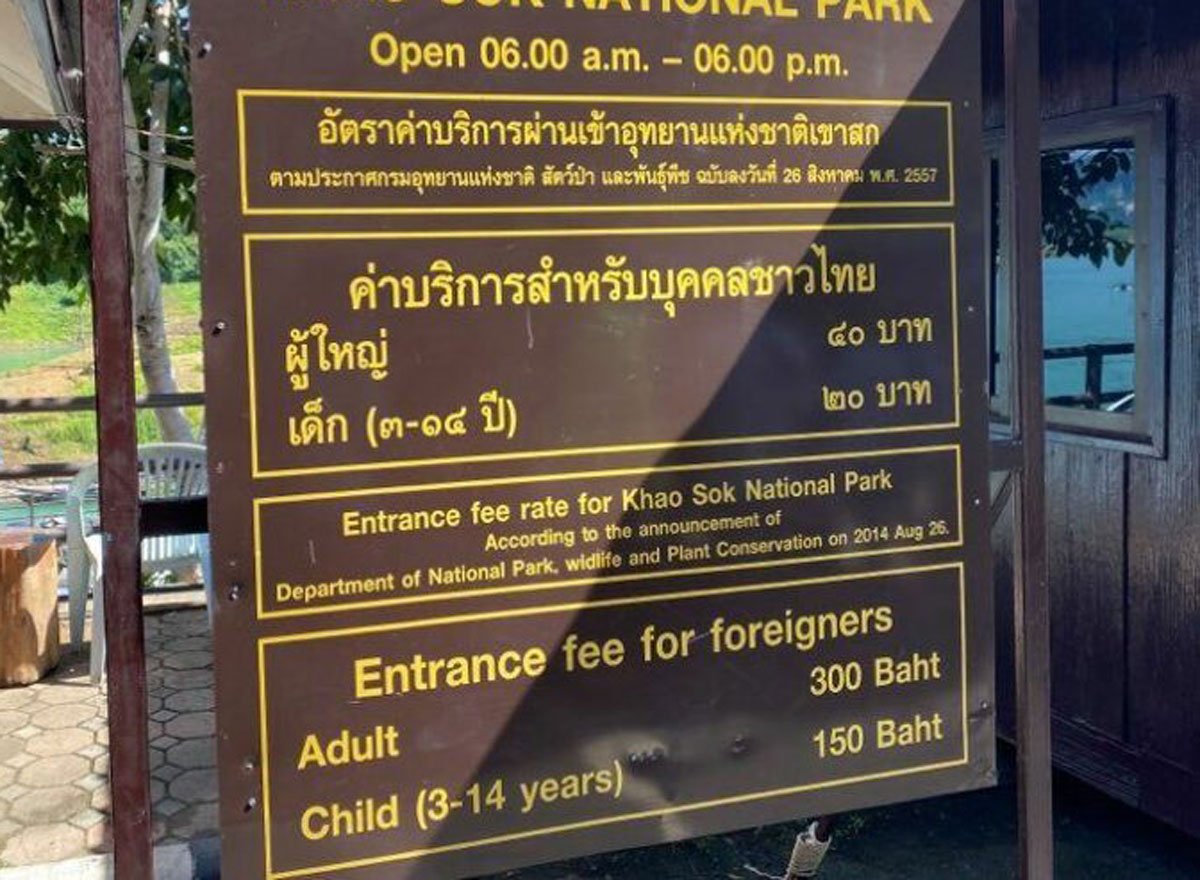FILE photo for reference only
ANALYSIS
Thailand's dual pricing policy, where foreign tourists often pay more than locals at attractions, sparks ongoing conversation. This practice, grounded in economic rationale, sometimes stirs feelings of exclusion among visitors, leading to mixed reviews and accusations of inequity—although it's crucial to note the difference between nationality-based pricing and racial discrimination.
Visitors to popular destinations, such as temples and national parks, encounter this tiered pricing structure, which charges foreigners higher fees compared to local residents.
Supporters argue it boosts domestic tourism by offering locals affordable access to cultural sites and helps fund and sustain these attractions amidst the influx of foreign tourists. Defending this strategy, proponents assert it's necessary for the upkeep of the nation's cultural heritage, ensuring its preservation for future generations.
Opinions diverge sharply on this issue. Critics label it as an unfavourable practice that creates a rift between locals and tourists. Many visitors feel targeted due to nationality-based pricing, viewing it as an implicit form of discrimination.
While not racially motivated, this differential treatment based on nationality can unintentionally harm Thailand's reputation as a hospitable destination, provoking feelings of inequity among international travellers.
Furthermore, the higher costs could deter some tourists, potentially affecting Thailand's competitiveness compared to neighbouring nations without such policies. Charges for foreigners can be significantly steeper, leading tourists to question the fairness of paying more for identical experiences as locals.
Nevertheless, Thailand remains a magnetic tourist destination thanks to its diverse cultural offerings. Despite higher fees, many visitors continue to flock to its renowned sites, suggesting that the exotic appeal outweighs financial grievances, at least for now. Advocates for dual pricing insist that these funds are critical for sustaining the infrastructure and services that make the sites attractive and accessible to all visitors.
The challenge moving forward lies in balancing the financial needs of maintaining tourist attractions with maintaining Thailand's image as an open and inclusive environment for all travellers.
Exploring a more balanced pricing strategy that respects both local and global visitors might enhance Thailand's tourist appeal and mitigate feelings of exclusion. Transparent dialogue about the purpose and benefits could bridge divides, fostering a more understanding atmosphere among international guests and aligning economic strategies with Thailand's longstanding tradition of warm hospitality, reported Pattaya Mail.
-- 2024-12-06





Inga kommentarer:
Skicka en kommentar